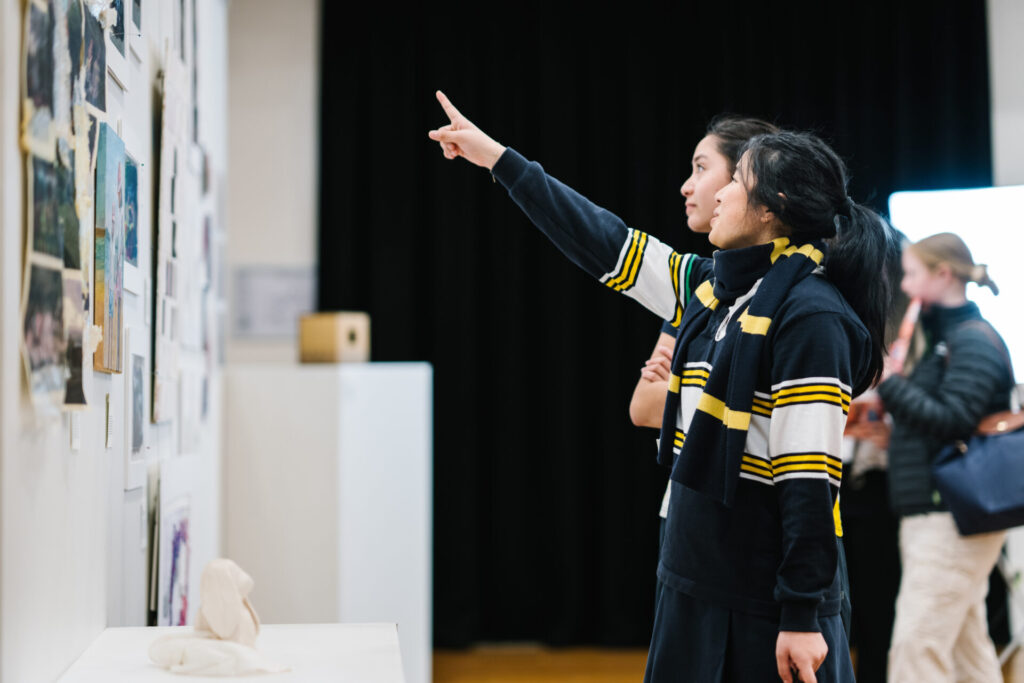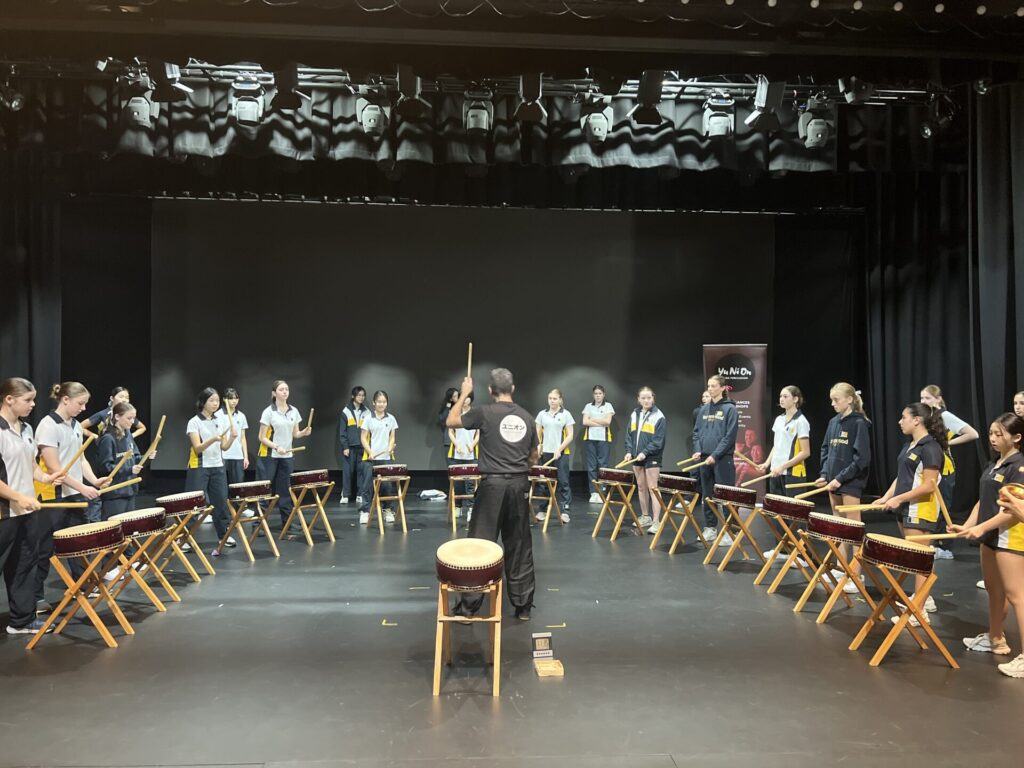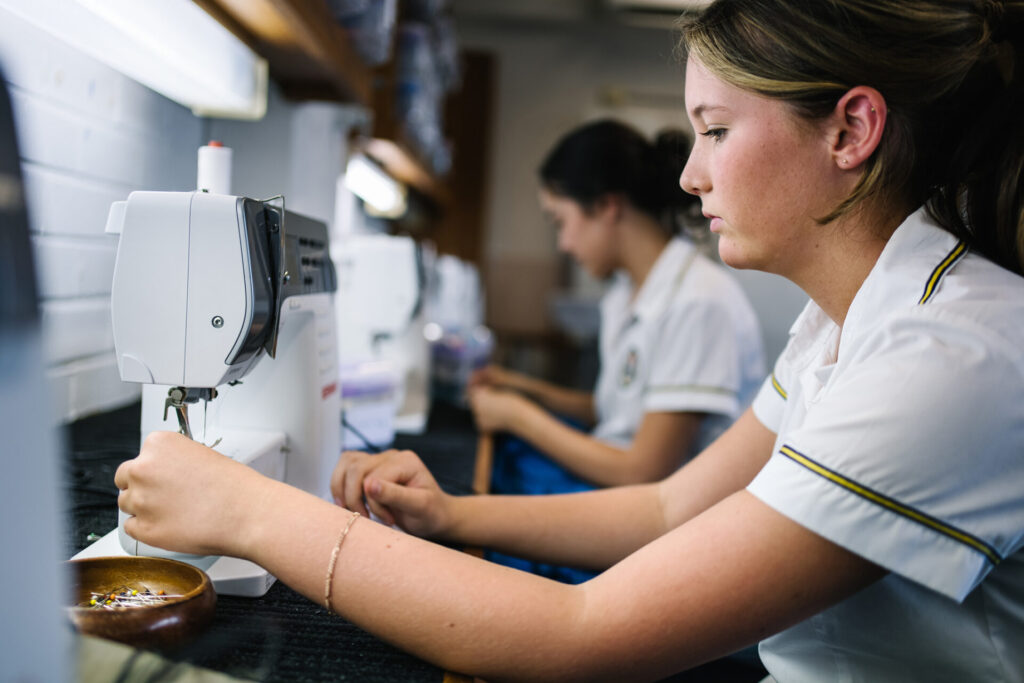Ravenswood School for Girls follows the syllabuses developed by the NSW Education Standards Authority, which incorporate the Australian Curriculum.
As a Uniting Church School, all students study Religious Education and attend Chapel fortnightly. Further, as a Positive Education School, all students in Years 7 to 10 engage in Positive Education classes fortnightly.
Students in Years 7 to 10 undertake an engaging and academically rigorous pattern of study. This encompasses the study of Core and Elective Subjects, including:

Core Subjects
English, Mathematics, Science, Personal Development, Health and Physical Education (PDHPE), Religious Education, History, Geography, Positive Education, Music (Years 7 and 8) and Visual Arts (Years 7 and 8).
Language Acquisition
At Ravenswood, we believe that language acquisition is an integral part of learning and fosters appreciation of and empathy with other cultures. The study of a language is compulsory in the IB Diploma, so we encourage all students to engage in learning a foreign language. Students entering Year 7 choose two languages to study, and will continue with at least one of these until the end of Year 9. Students choose from Chinese (Mandarin), French, German, Japanese and Latin.


Elective Subjects
In addition to their study of a language, students in Year 9 can include elective subjects in their pattern of study. Students choose from Commerce, Computing Technology, Drama, Design and Technology, Food Technology, History Elective, Music, Physical Activity and Sports Studies (PASS), Textiles Technology, and Visual Arts.
